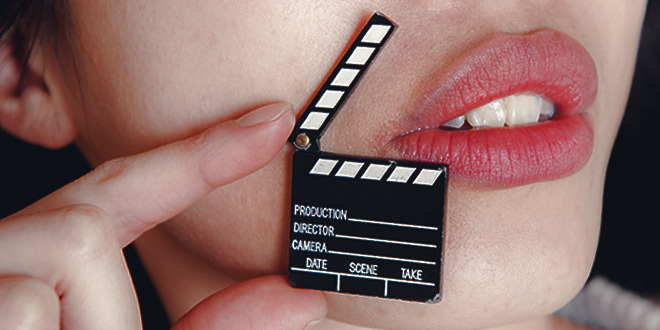Banned in my therapy practice is the word ‘should’. So often I have conversations with people about what they think their sex lives ‘should’ look like, how often they ‘should’ be having sex, and the type of sex that they ‘should’ be having.
But this isn’t unexpected when we think about the representations of sex that we have most readily available to us in the media, both mainstream such as TV, films, and series, and the other side of the coin which is pornography.

Mostly these versions of sex are like someone once described to me the ‘equivalent of learning about sex, as learning to drive from watching the fast and the furious’. On screen sex is more often than not dominated by perfectly proportioned bodies, unfaltering sexual functioning, perfectly co-ordinated orgasms and all without a hint of sweat, body odour, noise that isn’t moaning or screaming out in pleasure.
In comparison real sex is messy involves bodily fluids, uncomfortable positions, fun, connection, laughter, cramp, pleasure, occasional unintentional headbutts or embarrassing noises, being interrupted by kids/phone/doorbell/pets and the beauty of being above all, human. Sexual functioning is not constant, erections go up and down, sometimes we don’t orgasm, and like everything else in life varies, so does sex. Sometimes it’s good, sometimes it’s bad and sometimes it’s average. We can have out-of-this-world-crazy-passionate sex one week, and a let’s-just-do-it-so-we-can-go-to-sleep quickie the next.
So why don’t we celebrate and educate about this? There is so much pressure on sex to be a certain way when actually if we normalised the normality of our sex lives then it would give us so much more permission to enjoy it for that. We also always focus on the sex at the start of a relationship and aspire to the idea of continued spontaneity, but the reality is when you break it down and think about it, sex rarely is spontaneous at the start of a relationship. We are dating, and foreplay starts almost the moment we set a date and a time. A sense of excitement builds, and with that often comes desire. Anticipation is the most natural aphrodisiac that we have.
Although we may have those ‘movie moments’ when it comes to sex, we shouldn’t expect what we see on screen to translate into our lives as a standard and a constant, but in order to do this, the conversation about sex that we have IRL has to get, well, real. Sex is both physical and emotional, it’s not just about what we are doing but also the why. One of the most common difficulties we struggle with as a modern population at current is being able to enjoy sex, and to be fully in the moment.
But this is because we have the expectations for it to be ideal/perfect/amazing everytime. Because, what we also never see on screen or in the media is the background, the learning, the education, trial and error and exploration. The series that brought real attention to this was Netflix’s Sex Education, where the whole focus was on these things, but that went hand in hand with the title of the show. So when we see these versions of sex in the media, they appear to just spring into perfect existence and being, without the work being put in, without the conversation, the myth-busting, the range of experiences, the acknowledgement of all that can be challenging, but also great about sex.
So take a moment, next time that you are experiencing a version of sex that you see in the media and thinking that your sex life doesn’t resemble it or should be more like it; to focus on the key things that sex should be:
- Pleasurable
- With enthusiastic consent
- Healthy for you, whatever that looks like
It’s important to focus on your own reality of sex, not the reality that is written by someone else.
